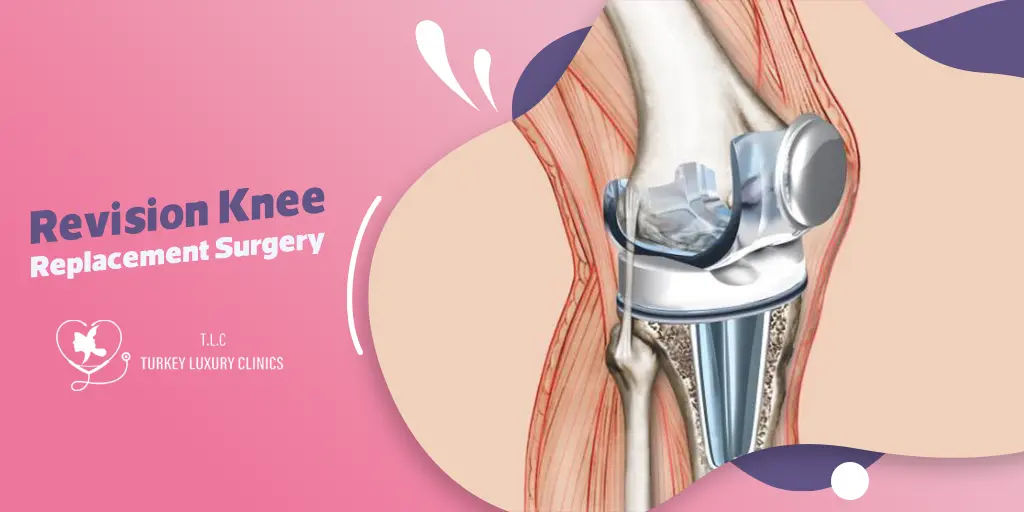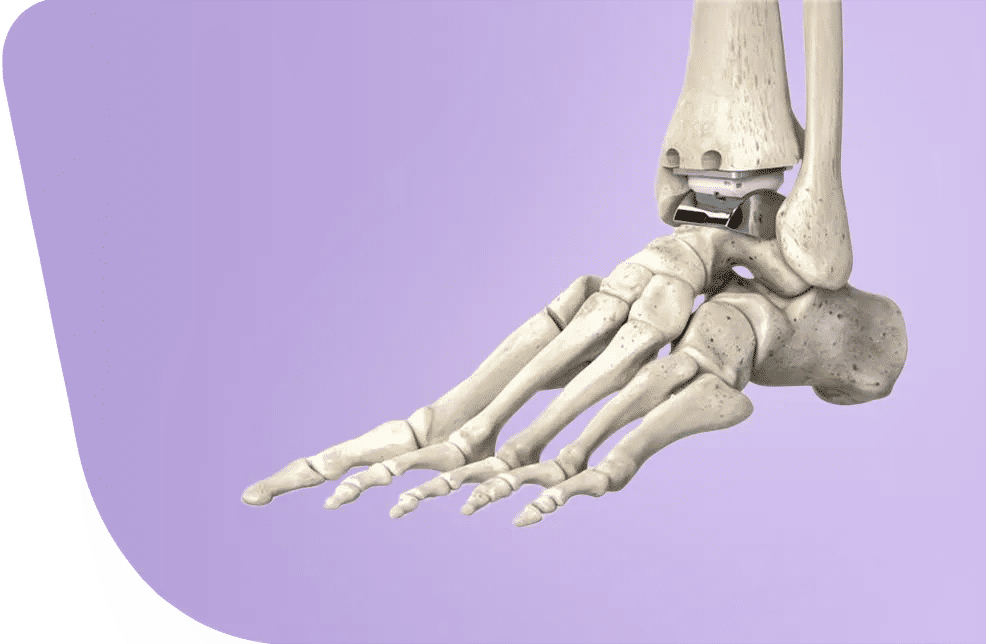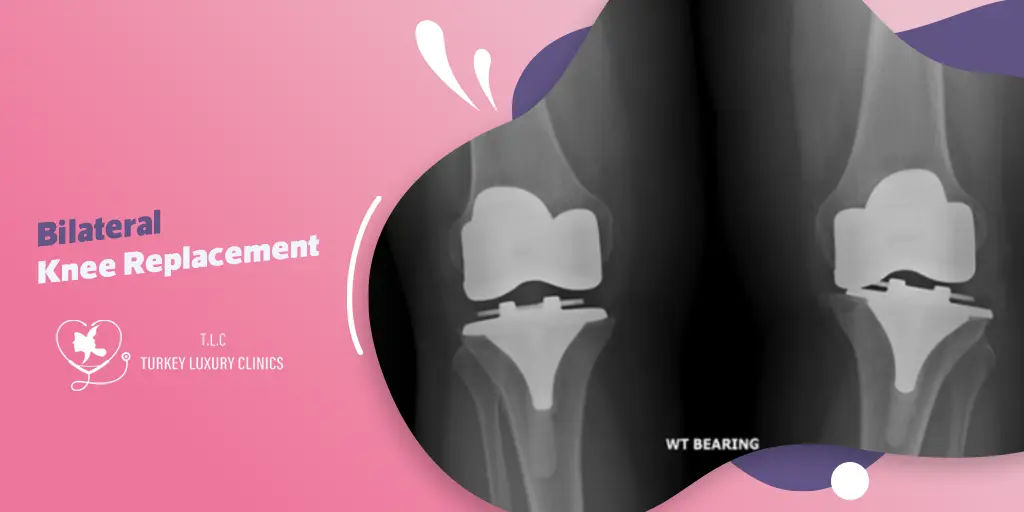- - Why Choose Turkey for Revision Knee Replacement?
- - What is Knee Replacement Revision Surgery?
- - Types of Knee Replacement Revision
- - How Much Does Revision of Knee Replacement Cost?
- - When Do Patients Need a Revision of Knee Replacement?
- - What are the Signs of a Knee Replacement Failure?
- - What to Expect during a Knee Revision?
- - knee Replacement Revision Surgery Video:
- - Knee Replacement Revision Surgery Recovery
- - Risks of revision knee replacement surgery
- - What is the Success Rate of Revision Knee Replacement?
- - Conclusion
- - Get Expert Knee Replacement Revision with Turkey Luxury Clinics
- - FAQs About Knee Replacement Revision in Turkey
Do you have a knee implant but your knee pain has returned? This could be a sign of implant failure, wear, or loosening.
Knee replacement revision is a procedure performed to correct problems with a previously implanted prosthetic knee.
In Turkey, patients benefit from 24/7 medical services, expert academic staff, and modern infrastructure. The newer implant designs and advanced surgical techniques have greatly improved the success rate of knee replacement revision surgery, making Turkey an excellent choice for those seeking high-quality care, successful outcomes, and affordable prices.
In fact, more than 75–80% of patients in Turkey can expect their revised knee replacement to last at least 10 years, with costs typically ranging from $7,000 to $12,000 per knee.
At Turkey Luxury Clinics, we guide you with full transparency to determine whether revision surgery is the best solution for you, offering expert care, clear guidance, and personalized recovery plans. Contact us today for a free consultation and a tailored price quote.
Why Choose Turkey for Revision Knee Replacement?
Turkey is home to internationally certified surgeons who specialize in revision knee replacement surgery. With modern infrastructure, cutting-edge technologies, including the use of robotic knee replacement, and professional, compassionate care, you can enjoy restoring a pain-free life with natural feeling and function.
All this comes at affordable prices through comprehensive Turkish medical packages, allowing you to combine effective treatment with a comfortable medical tourism experience.
What is Knee Replacement Revision Surgery?
Knee replacement revision surgery is a procedure in which a previously placed knee implant prosthesis is replaced due to loosening, failure, wear, or complications.
Revision surgery for knee replacement is more complex than the primary knee replacement procedure and takes longer, as it requires removal of the previous implant, precise cleaning, and addressing any new bone or tissue damage.
It also demands extensive preoperative planning, specialized implants and instruments, longer surgical time, and proficiency in advanced surgical techniques.
Types of Knee Replacement Revision
Revision of knee replacement can be performed after either total knee replacement or partial knee replacement
Total knee replacement revision surgery
Revision of totally replaced knee refers to removing and changing a previously replaced knee, it involves all parts replacing including femoral and tibial components and sometimes the patellar components
Total knee replacement revision surgery sometimes involves bone grafting or metal wedges to replace lost bone.
Implant types used in revision are different than in primary replacement, they should be longer to fit and fix bone.
Partial Knee Replacement Revision Surgery
Revision of a partially replaced knee involves removing the previously implanted part, cleaning the site, and inserting a new implant component.
This may include replacing only certain parts of the prosthesis, such as the plastic insert, or replacing the entire prosthesis, including both metal and plastic components.
Similar to total knee revision surgery—but to a lesser extent—it may involve bone grafting and requires specialized implants and surgical techniques.
How Much Does Revision of Knee Replacement Cost?
The cost of knee replacement revision ranges between $18,000 and $50,000, generally costing 2 to 4 times more than a primary knee replacement.
Prices vary depending on the complexity of the case, the clinic’s and surgeon’s reputation and experience, the type and cost of the new implant, and insurance coverage.
In Turkey, the cost of revision knee replacement can range from $6,000 to $15,400, which is about 75% lower than in the US, where prices typically range from $24,000 to $75,000.
These price ranges usually include the surgery, surgeon fees, and hospital stay. However, in Turkey, various comprehensive packages are available that cover additional medical services and non-medical expenses.
All-inclusive knee replacement revision packages in Turkey attract international patients worldwide by making the entire medical journey more affordable and comfortable.
Whether you choose the standard or premium packages, all essential medical and non-medical expenses will be covered. Premium packages offer additional benefits such as private transfers, luxury accommodation, personalized care, and extended rehabilitation services.
Cost comparison in various countries:
- Best hospital for revision knee replacement surgery in Delhi: Costs typically range from $7,000 to $10,000.
- Revision knee replacement surgery Melbourne: Prices usually fall between $8,000 and $12,000.
- Revision knee replacement surgery Chennai: Known for affordability, with costs around $6,500 to $9,000.
- Knee replacement revision surgery Los Angeles CA: Estimated costs range from $20,000 to $30,000.
- Knee replacement revision surgery Anaheim CA: Prices generally range between $18,000 and $28,000.
- Total knee replacement revision surgery Lakewood CA: Costs typically between $19,000 and $27,000.
When Do Patients Need a Revision of Knee Replacement?
Knee replacement revision is indicated when the previous implant failure or complications occur. There are five main reasons why knee implants fail:
1. Prosthesis wear
Wear refers to the gradual deterioration of the implant surfaces, especially the plastic components. This happens over time due to regular use, excessive activity, or obesity. Wear can lead to the release of tiny particles that may irritate the surrounding bone and tissues, potentially causing inflammation and damage.
2. Implant loosening
Loosening occurs when the implant becomes detached or unstable in the bone. This can result from prosthesis wear, overstress, infection, or bone loss. Loosening causes pain, joint instability, and impaired movement. Revision surgery is often needed to fix or replace the loose implant.
3. Infection of knee tissues surrounding the implant
Infection can occur shortly after surgery or even years later. Symptoms include pain, redness, swelling, and sometimes fever. While antibiotics often treat infections, in some cases, removing the implant is necessary to fully eliminate the infection.
4. Knee prosthesis instability
Instability leads to difficulty walking, with the knee feeling wobbly or giving way during activity. It may result from ligament injuries, bone problems, or implant issues.
5. Arthrofibrosis after total knee replacement
Arthrofibrosis after total knee arthroplasty is the excessive formation of scar tissue around the knee joint, leading to stiffness and a limited range of motion following knee replacement.
Treatment for arthrofibrosis may include prolonged physical therapy, but in severe cases, knee revision surgery becomes necessary.
Indications for revision surgery for arthrofibrosis after total knee replacement include severe stiffness and pain that do not improve with therapy, significantly impacting daily activities.
What are the Signs of a Knee Replacement Failure?
Pain, decreased joint function, knee instability, and swelling or stiffness in the knee joint are the most common symptoms of a failed knee implant. Persistent pain and swelling may indicate loosening, wear, or infection. The location of the pain may be throughout the knee (generalized) or in a specific area (localized). A decline in knee function may result in limping, stiffness, or instability. Patients who experience these symptoms and signs may require revision knee surgery.
What to Expect during a Knee Revision?
The first step is to remove the old implant, preserve as much bone as possible, and, if necessary, use bone grafts to fill the gaps where the bone has been destroyed. The new prosthesis is then placed. Most revision knee surgeries take longer than primary surgeries (about two to three hours).
knee Replacement Revision Surgery Video:
Watching a knee replacement revision surgery video can help patients understand the procedure better, showing the careful steps surgeons take to remove and replace the implant. These videos offer valuable insight into the complexity and precision involved in revision surgeries.
Knee Replacement Revision Surgery Recovery
Recovery from revision knee replacement surgery generally takes longer than from the primary surgery. For most patients, it takes about 3 to 6 months to return to normal life—being able to perform daily activities, work, and walk without assistance. Full recovery, including a return to vigorous activities and heavy work, can take around a year.
Revision knee replacement surgery recovery time
It's so important to feel informed and prepared for what's to come after surgery. You may need some extra help at home for a few days, a few weeks, or even a few months after you leave the hospital.
It's a good idea to have a friend, family member, or caregiver ready to lend a hand. You might need a walker, a cane, or even crutches for a few days or weeks, until you're feeling better and walking without assistance.
Risks of revision knee replacement surgery
The risk of complications after knee replacement surgery revision is higher than in primary knee replacement, because it takes a longer period, involves removal of inserted parts and is more complex than a primary total knee replacement.
knee replacement revision surgery carries risks of bleeding, fracture of a bone during surgery, nerve damage, blood clots, poor healing, risk of infections, and risk of failure of revision.
The risk of complications increases in certain conditions, including higher activity levels that cause faster wear, chronic diseases such as diabetes, hypertension, and heart disease, obesity, and smoking.
What is the Success Rate of Revision Knee Replacement?
Typically, the success rate for revision surgery is around 90–95% at 5 years and about 70–80% at 10 years, gradually decreasing over time. Most patients experience pain relief, improved movement, and better knee function after revision surgery, but overall, the success rates remain lower compared to primary knee replacement procedures
Conclusion
Although total knee replacement surgery is highly successful in the majority of patients, some procedures fail. Certain signs and symptoms, such as increased pain or decreased knee function, may indicate joint failure. The majority of patients who undergo revision surgery experience positive long-term results, including pain relief and increased stability and function.
Get Expert Knee Replacement Revision with Turkey Luxury Clinics
Are you experiencing persistent knee pain or reduced mobility after your knee replacement? Don’t wait to get the care you deserve. Contact Turkey Luxury Clinics today, and our expert team will guide you every step of the way toward a successful revision surgery and a better quality of life.
If you’re also suffering from persistent shoulder or hip pain, consider shoulder joint replacement or hip joint replacement as a permanent solution. Consult our specialists to find out if you qualify for these surgeries.














.webp)
.webp)
.webp)
.webp)

